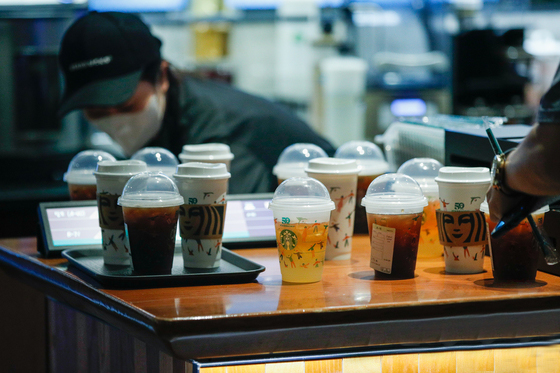As environmental issues such as climate change and global warming have been steadily raised, reducing carbon emissions and solving microplastics problems have become major challenges. In the aftermath of COVID-19, there is an increased demand for delivery services, meal kits, and frozen foods which in turn leads to a surge in plastic wastes. According to the Ministry of Environment of Korea, plastic waste generated last year increased by about 20% compared to the previous year. Delivery food containers are said to have accounted for a significant portion. At this rate, it is feared that plastic consumption could increase 20 times by 2050. Consumers have begun to call for waste reduction, preferring sustainable products even more. Since the generation MZ consumes products that suit their beliefs and values, they are more likely to choose green options. It is related to the word ‘meaning out’ that refers to the expression of individual beliefs or tastes through consumption activities.
Besides their selective spending, many companies are changing their strategies in an eco-friendly way. Efforts to reduce plastic use continue through various brands in Korea. Many cafe brands are trying to replace disposable plastic cups with multi-use cups and to use biodegradable paper straws, unlike plastic straws. Food companies are also actively introducing eco-friendly packaging materials. For example, no-label bottles are manufactured to remove vinyl labels increasing their recyclability. They are also planning to change plastic containers and buffers to paper materials. Some beauty brands offer discounts or points if consumers bring used cosmetics containers to the store. These companies’ efforts are related to ESG, one indicator of evaluating companies recently. ESG, a word derived from the initials of Environment, Social, and Governance, is a significant consideration in non-financial performance. It contains the philosophy that sustainable development can be achieved only by considering transparent management such as eco-friendly, social responsibility management, and governance improvement.
The problem is that it is difficult to confirm whether these eco-friendly managements are worthwhile to the environment. Greenwashing refers to a form of marketing that promotes as if it were eco-friendly for economic profit, although it was not actually eco-friendly. The term was originally coined in the 1980s by environmental activist Jay Westerveld inspired by the irony of the save your towel movement. This includes reducing environmental pollution problems that occur in the entire production and highlighting only some parts of processes to pretend to be ESG. It is a deceitful action intended to mislead consumers or audiences who want to buy products and services from environmentally conscious brands.
Recently, the reusable cup event of one coffee brand has been embroiled in controversy over greenwashing. Many people lined up at stores for many hours and even the mobile order app went down. It seems that it was the perfect marketing plan to target people. However, people found that reusable cups are more like a product that may encourage environmental pollution. Since it is made out of plastic called polypropylene, it is hard to use permanently like a regular mug or a drinking glass followed by the mass production of plastic waste. People ended up making trash again in the name of saving it. To make the reusable cup more firm, it emits more carbon than disposable cups. A paper bottle launched by a Korean cosmetic company is another example. The brand promoted an eco-friendly image with the paper bottle. It, however, turned out that they only changed the label to paper and put the phrase “HELLO, I’M PAPER BOTTLE” on the product. On social media, boycotts appeared from consumers who thought of it as a plastic-free bottle and purchased the product.
As ESG management has begun to be recognized as a necessity, not an option, voices of caution against greenwashing are growing. Excessive marketing to target green consumers and MZ generation leads to environmental destruction. Consumers need to look out to spot greenwashing as many products have been pouring out with the label “eco-friendly” or “sustainable”. We have to remain vigilant against greenwashing.
–
K-UNIV Reporter
Nahyun Lee




